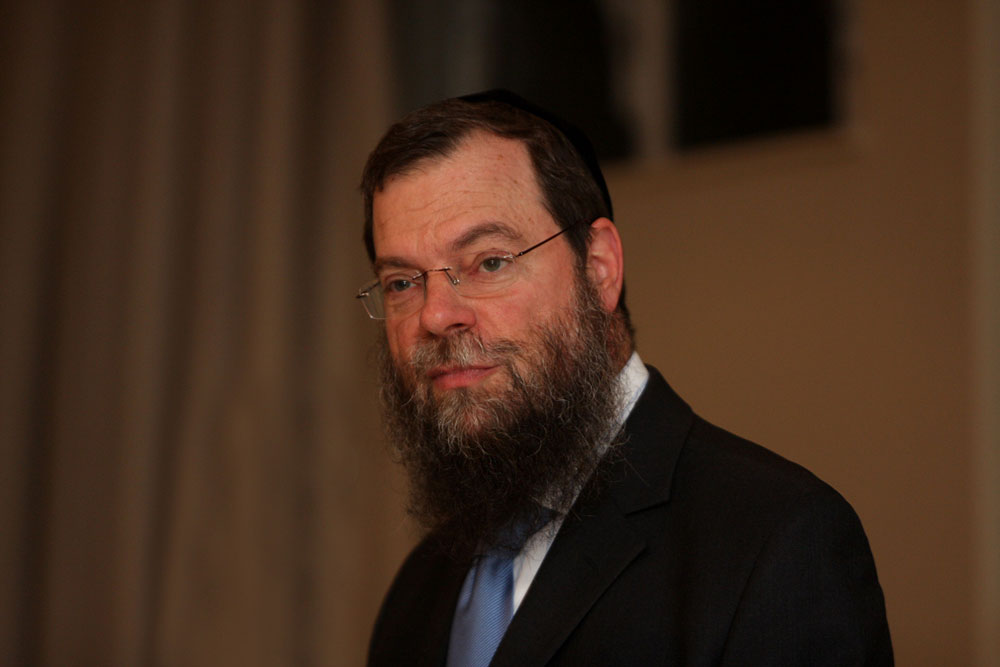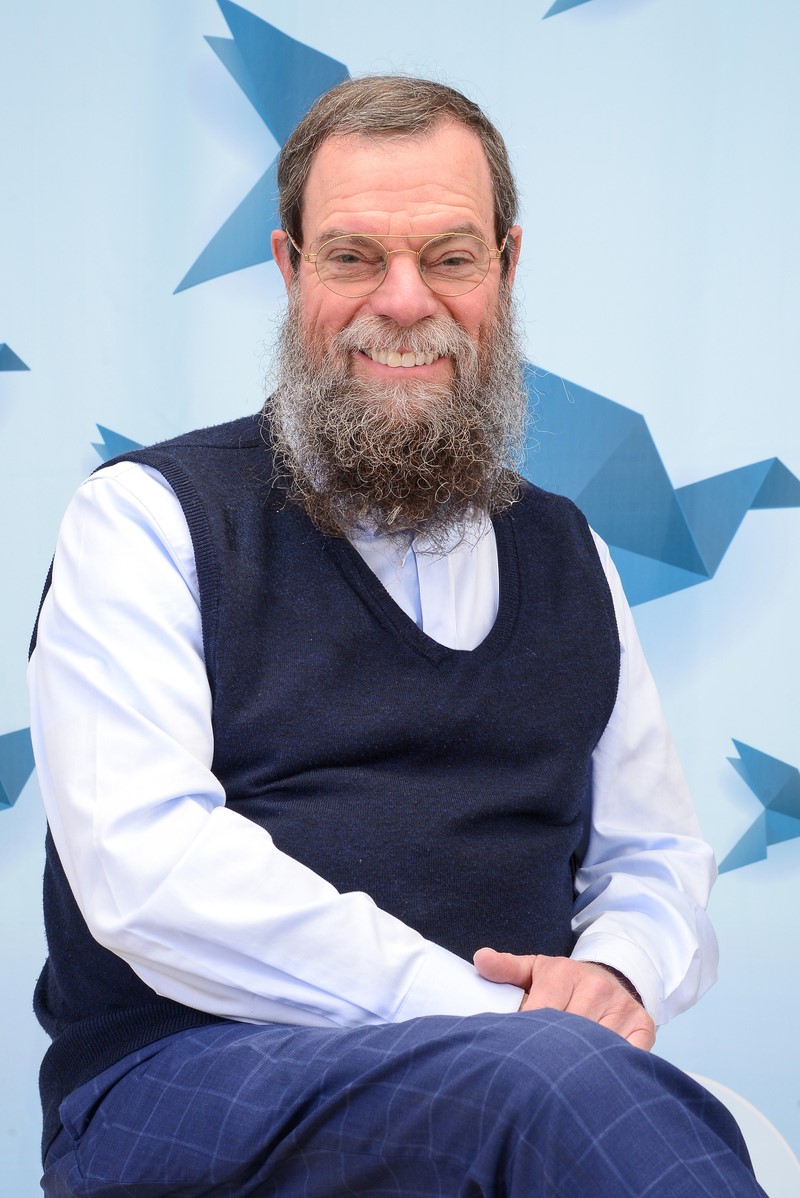Welcome to Rabbi Resource
Rabbi Yossy Goldman is available for Lectures, Shabbatons and Keynote Addresses around the world.
Available Sermons
How to Deliver an Effective Sermon
About Rabbi Goldman
Rabbi Yossy Goldman has been the Senior Minister of Sydenham Highlands North Hebrew Congregation since September 1986. He is now the longest-serving rabbi since the Shul was established in 1943. Since coming to Sydenham, he has devised a range of educational programmes and activities which have captured the enthusiastic interest of his community. A popular public speaker with an endearing sense of humour, he is guiding hundreds of families on their spiritual expedition through living Judaism.
Rabbi Goldman’s synagogue sermons are considered among the finest in the Jewish world. Many have been published online with the international website chabad.org and are today being translated into Hebrew, Spanish, Russian, and even German. He is in great demand as a public speaker and has delivered many important addresses in South Africa, the USA, Europe and Australia. He lectures extensively on a wide range of subjects, including Kabbalah, the study of Jewish Mysticism.
Many Shluchim still talk about Rabbi Goldman’s outstanding Keynote Address at the Kinus Hashluchim back in 2002.
Rabbi Goldman is author of From Where I Stand, Life Messages From the Weekly Torah Reading, published by KTAV Publishing, New Jersey, USA in 2012. He is President of the SA Rabbinical Association, having served as its most successful Chairman for 12 years. He is a member of the Board of The Torah Academy school, Johannesburg. Rabbi Goldman has served as a member of the Religious Broadcasting Panel of the South African Broadcasting Corporation (SABC) and often represents the Jewish faith on radio and television.
New York born, Rabbi Goldman has been in South Africa since 1976. He originally came to South Africa at the behest of the revered Lubavitcher Rebbe obm to serve as Founding Director of this country’s very first Chabad House back in Yeoville. During his ten years there, he initiated many successful services which have become institutions in Johannesburg’s Jewish communal life. These include Gan Yisrael Day Camp, Festival of Lights with the Giant Menorah, Lag B’Omer Parades and more. He founded and presented The Jewish Sound radio programme every week for 24 years. In 1983, he helped found the Torah Academy Shul and served as its first rabbi.
He obtained Semicha (Rabbinic Ordination) in Montreal, Canada in 1973 from the Rabbinical College of Canada. Among the signatories was the late Chief Rabbi and Head of the Montreal Beth Din, HaRav HaGaon Rav Pinchas Hirschprung obm. He was also Rosh Machaneh of Camp Gan Israel of Canada in 1972.
Rabbi and Rochel (nee Kazen from Cleveland, Ohio) were married in June 1973 and are the proud parents of 11 children and, Baruch Hashem, a growing number of grandchildren.
They are particularly proud that their children are serving as the Rebbe’s Shluchim and as Communal activists around the world.
"Know before whom you stand," is not only advice for the Chazan. It's even better advice for the Rabbi! Know your audience, and prepare accordingly."
Effective Sermon Tips
By Rabbi Yossy Goldman
Preparation
Don’t fall into the trap of the Pre-Licht Bentshen Sicha Syndrome. Too many of us run to grab a Sicha on the way to Shul. Respect your audience. Prepare early. Friday mid-day the latest for Shabbos Droshos and much earlier for Yom Tov.
Da Lifnei Mi Atoh Oimed
Know your audience! It took me a long time to feel that I really, really understood the mindset of the community. Always consider if what you have prepared will be relevant to the listeners. You may find a particular vort very appealing to you and geshmak. That doesn’t mean they will. Think carefully before choosing your subject.
Lo Hamedrash Ikkar eloh Hamaiseleh!
The best Drosha will lack that winning sparkle if there is no story, anecdote or joke to give it life. You can have a question, answer and the moral of the story all worked out. Put in the maaiseh and it immediately goes from ‘very good’ to ‘excellent!’
One Message Only
Many experienced speakers fail because they give two or three speeches in one address instead of keeping it to one cohesive, organized message. Confine yourself to one theme only, develop it with illustrations/stories/jokes and come to a conclusion. Do not succumb to the temptation to throw in another idea if it is not on the same theme.
Structure
Start with a compelling opening line. If you begin your Drosha with those classic words “In this week’s Parsha,” you have probably immediately lost your audience!
It can be an intriguing (or controversial) statement or a question you throw out to the audience. It should make them sit up and think, not lie down and sleep.
Then clarify your Theme. Thereafter illustrate it with a story, moshol or joke. Build up to an exciting climax and conclude with a message that involves the listener – halocha l’maaseh.
Voice & Technique
Some have better speaking voices than others. Everyone should learn to project their voices without getting hoarse. There are voice coaches and clinics available in every community. It is a good investment for life.
Don’t speak in the same tone throughout the whole speech. Whether it is eidel and soft or passionate and loud, any monotone is boring. You need to alternate between soft and soothing and loud and powerful. This is known as modulation. The power is far more effective if it reserved for the climax.
Body language is critical. Experience and becoming comfortable in the pulpit (or at the microphone) go a long way. Don’t fidget or adjust your Talis, Yarmulka or glasses constantly. That means you are visibly nervous and anxious. Even if you really are nervous, fake it and try to look confident. In time, you will become more comfortable and then your body language will be more natural and effective.
Look at people in the audience, not just the Chumash or the ceiling. Focus on one or two individuals throughout. It gives you a closer, more intimate connection with the audience.
Special Delivery!
If you want your delivery to be special, don’t read your speech! Politicians do it all the time. It is a gift to be able to read from a typed out speech and still look at your audience sufficiently. Most speeches that are read are very boring. It is usually better to prepare notes that you glance at occasionally rather than read from. Unless you are giving a major address that must be letter perfect, do not read. If you must, review it enough times before so that you can look up from the paper regularly and connect with the audience. Try and make believe that you are not reading.
Different Styles for Different Occasions
A Sermon is not a Lecture and a Shiur is not a Hesped! Your style and mood should fit the occasion. A sermon (especially in a formal synagogue) is more formal and one can get away with a little “preaching.” (‘Fire and Brimstone’ mussar, however, should be reserved for exceptional circumstances only.) A lecture is somewhat more casual. You can walk around a bit, put your hand in your pocket or take a sip of water now and then. A speech under a Chupah may have some humor (if it is not such a Chassidishe family) but a Hesped would normally not. (Actually, with a lot of experience, you may even be able to make people smile at a funeral by remembering some of the characteristic idiosyncrasies of the deceased; but only if you can do it in a loving way. I don’t recommend trying unless you are very comfortable in the role and with the family.)
Make sure your style fits the occasion. If you have only ‘one style for all occasions’ somewhere you will be off the mark.
When to tell a joke: Believe it or not, the best time for a joke is not necessarily at the beginning of a speech. Yes, you do need an “ice-breaker” at the beginning to make people feel relaxed so they will pay attention. But that should rather be an informal, witty comment that refers to something that may have happened earlier. It does not have to be a prepared joke. The joke is actually far more effective in the middle of your speech, just as people may be starting to tire. It will perk up their interest and save you from boring them.
When telling a joke, please do not say, “I want to tell you a joke.” Rather say something like “It reminds me of the story of…” or “Just like Yankel…” You risk setting yourself up for failure if you make a promise you don’t keep because they didn’t find it fumy.
Vocabulary: Your choice of words does not have to be like Winston Churchill’s! In fact, sometimes graduates of the Oholei Torah School of English find it necessary to use the longest, most convoluted (that means complicated) words they can find – just to make an impression! This is unnecessary and, in fact, counterproductive. Good language and careful choice of words are important, but people don’t want to hear words they don’t understand. It sounds unnatural and artificial.
Smile! Unless it is a hesped or a very serious speech, it is always good to look friendly. Professional entertainers smile at the people when they sing. You’re not an actor, chas vsholom, but a smile warms you to your audience and that is a good thing.
Beware Speed Traps! Some speakers talk too fast, others too slowly. It is an art to get it right. When you are starting out, ask a few good friends for constructive criticism. (Your Rebbetzin is usually the best critic and you may not even have to ask her, she’ll gladly volunteer! Take her comments seriously.)
Dvorim Hayoitzim Min Halev
In the final analysis, sincerity is the best form of charisma. If you genuinely believe in your message and are passionate about it, you will get through to your listeners and penetrate their hearts. Therefore, when choosing a topic, make sure it speaks to you. Because if you haven’t bought into it, there’s no way they will.
Experience is a great teacher. Even if you are just starting out in public speaking, with time you will improve. If it doesn’t come naturally, with hard work and practice you can still become reasonably good at it. Don’t despair and don’t give up. But don’t expect it to happen automatically. As with everything, Lfum Tzaroh Agra.
Wishing you Hatzlocha Raboh Umuflogoh!
Rabbi Yossy Goldman
I am not that cynical. I have seen people change direction in life from listening to the Rabbi’s sermons. But they have to be good!
Rabbis often ask, “Is anybody listening?”
If you will prepare good material, with a meaningful message, peppered with some humor, you may be very pleasantly surprised at your results. The sermon can be a powerful tool in turning around the mindset of a community from casual observers to active participants. People are hungry for wisdom and guidance in life. You have it, so please give it to them!












